In contemporary urban development, the narrative of real estate is expanding beyond economic metrics to encompass a profound social imperative. The sector, as a key architect of environments, increasingly bears responsibility for fostering community well-being and equitable growth. It is from this critical vantage point that we engage with Mr. Anshuman Magazine, Chairman & CEO of India, South-East Asia, Middle East, and Africa for CBRE. As a leader who has steered CBRE's significant expansion in India over nearly three decades, cultivating a team exceeding 16,000 professionals, Mr. Magazine offers a distinct perspective on the evolving responsibilities inherent in commercial real estate.
CBRE, recognized as a global leader in commercial real estate services and investment, has notably transformed its corporate responsibility framework. Their strategic shift, particularly pronounced in India, moves beyond conventional philanthropy to embrace a purpose-driven model. This is exemplified by 'Ek Pehal', their flagship initiative launched in 2019, which strategically aligns the company's core expertise with the pressing needs of vulnerable communities, most notably migrant construction workers and their families.
This interview provides an opportunity to examine the strategic underpinnings of CBRE's recently unveiled 2025 CSR roadmap and its implications for long-term inclusive development. We will also explore the methodologies through which CBRE localizes its global ESG vision to effectively address India’s unique social landscape, ensuring tangible and sustainable outcomes.
Dive into the full conversation to learn how urban growth can align with social good.
Q&A
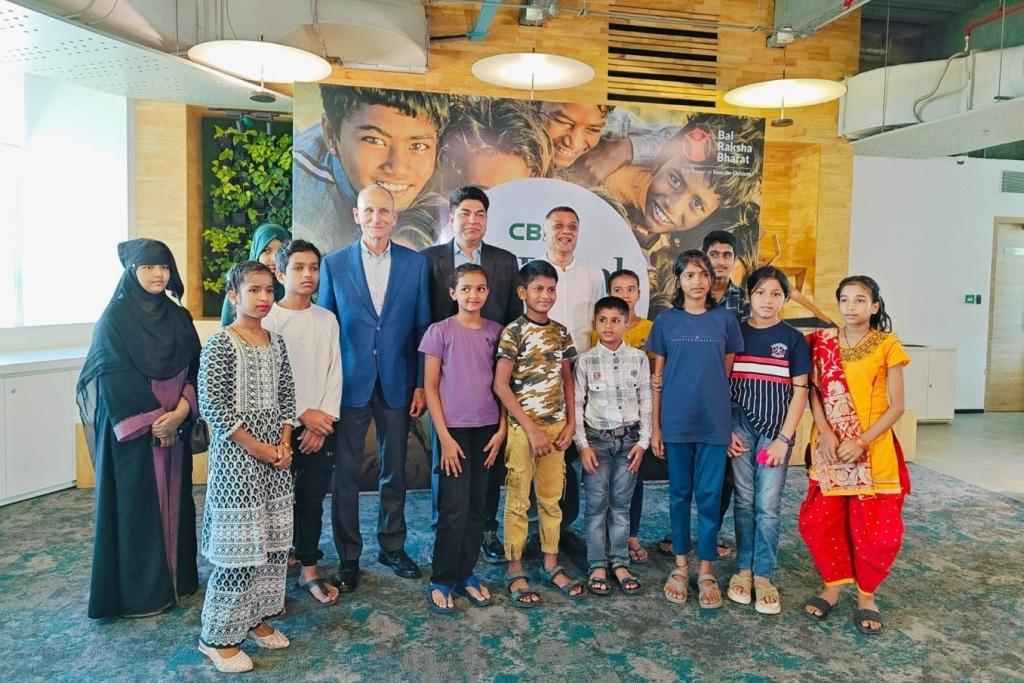 Q. Over the years, CSR in India has evolved from compliance to strategic impact. How has CBRE’s approach to CSR transformed in this journey—from philanthropy to purpose-driven programs like ‘Ek Pehal’ that align with core business expertise and community needs?
Q. Over the years, CSR in India has evolved from compliance to strategic impact. How has CBRE’s approach to CSR transformed in this journey—from philanthropy to purpose-driven programs like ‘Ek Pehal’ that align with core business expertise and community needs?
A. The CSR efforts of corporates in India have evolved significantly, with a focus shifting towards robust strategic impact and community empowerment. CBRE is strongly aligned with this paradigm shift as our CSR initiatives are deeply embedded in our business strategies, reflecting a commitment to responsible practices across our global operations.
Our commitment to corporate responsibility extends to various initiatives, including healthcare, education and skill development, women empowerment, and slum area development. These initiatives align with the United Nations' Sustainable Development Goals, demonstrating CBRE's commitment to making a positive impact on society. At the centre of this lies our flagship CSR initiative, 'CBRE Ek Pehal', launched in 2019, which aims to support migrant construction workers and their families across multiple identified areas, including education, healthcare, and slum infrastructure development, in major cities across India.
Q. CBRE recently unveiled its 2025 CSR roadmap under the ‘Ek Pehal’ banner. What catalyzed this renewed focus on supporting migrant construction workers and their families, and how does it reflect CBRE’s long-term commitment to inclusive development?
A. CBRE’s 2025 CSR roadmap under the ‘Ek Pehal’ was driven by the needs of India’s vast population of migrant construction workers and their families specially in urban centres. These communities often face significant barriers to accessing essential services such as healthcare, education, and basic infrastructure. Recognizing the critical role of the construction sector, which employs a large number of migrant workers who often live in vulnerable conditions, CBRE has crafted its CSR strategy to directly address these challenges, aiming to create tangible, lasting improvements in their lives.
This renewed focus is also a testament to the impact of earlier initiatives. All the CSR initiatives under ‘CBRE Ek Pehal’ are tailored to meet the specific needs of the communities, ensuring that the outcome is both relevant and effective. Leveraging its partnerships and resources, CBRE India has already made significant strides, impacting more than 2,00,000 lives since the launch of CBRE Ek Pehal in India in 2019.
Building on this momentum, the 2025 roadmap sets an ambitious goal to reach an additional 150,000 beneficiaries with programs tailored to the unique needs of each community. This approach reflects CBRE’s long-term commitment to inclusive development and sustainable social impact.
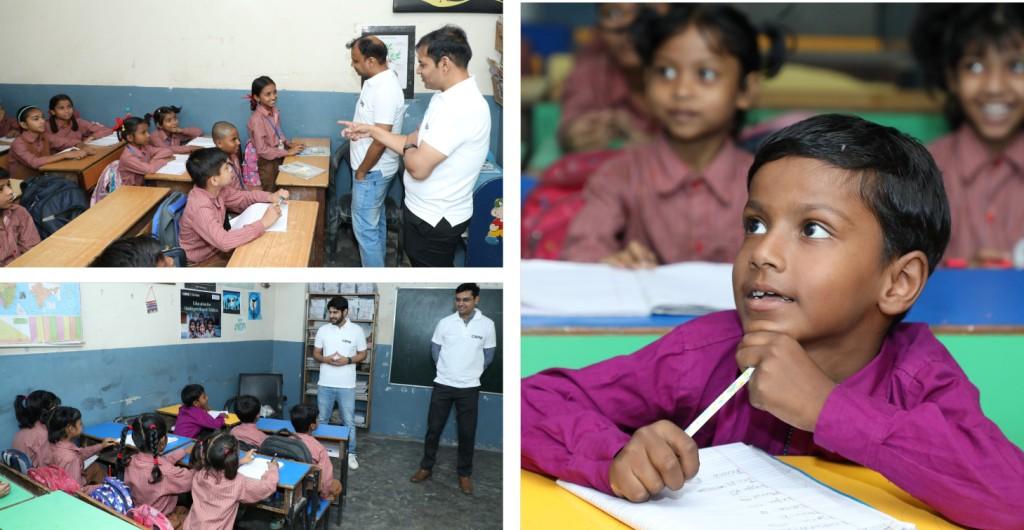 Q. With operations spanning 19 countries, how does CBRE localize its global ESG and CSR vision to suit India’s unique social landscape, while ensuring measurable and sustainable outcomes?
Q. With operations spanning 19 countries, how does CBRE localize its global ESG and CSR vision to suit India’s unique social landscape, while ensuring measurable and sustainable outcomes?
A. With operations across 19 countries, CBRE effectively localizes its global ESG and CSR vision to suit India’s unique social landscape while ensuring measurable and sustainable outcomes. In India, this involves close collaboration with local NGOs, government bodies, and community stakeholders to address specific needs. Initiatives under the ‘Ek Pehal’ banner are thoughtfully designed to align with India’s distinct development priorities and the UN SDGs. By focusing on critical areas such as health, education, and nutrition, CBRE’s approach not only addresses the immediate challenges faced by vulnerable communities but also ensures long-term impact and sustainability.
Q. The real estate sector plays a critical role in shaping how societies live, work, and grow. How do you see this sector influencing the creation of accessible and equitable social infrastructure for underserved communities in India?
A. The real estate sector has a significant influence on creating accessible and equitable social infrastructure for underserved communities in India through various Corporate Social Responsibility initiatives. CBRE's flagship initiative in India, 'CBRE Ek Pehal,' focuses on empowering migrant construction workers and their families, as well as other marginalized groups. This program addresses critical areas of social infrastructure and community development. CBRE actively engages in the holistic development of building infrastructure in identified slums, which includes creating community halls, undertaking home repairs for the underprivileged, and painting school walls. Besides, the program provides access to basic necessities like food and shelter and offers skill-building opportunities to help individuals achieve a dignified life.
Q. As Indian cities continue to urbanize rapidly, what is CBRE’s vision for inclusive and resilient urban development—where real estate is not only commercially viable but also socially responsive?
A. CBRE's vision for inclusive and resilient urban development intertwines commercial viability with social responsiveness through a comprehensive Environmental, Social, and Governance strategy. This vision positions real estate as a powerful tool for a positive impact on people & communities while simultaneously driving financial returns. CBRE views ESG as fundamental to its business strategy, aiming to deliver outstanding results for clients by driving financial performance through sustainability. By demonstrating a strong commitment to sustainability and social responsibility, CBRE aligns with its clients' values, fostering stronger and more enduring partnerships. Another key aspect is prioritizing people and communities. CBRE's commitment to creating a diverse, equitable, and inclusive workplace fosters employee engagement and a strong ethical culture. This translates into better service quality and a more positive experience for clients.
CBRE's commitment to corporate responsibility extends to various initiatives, including healthcare, education and skill development, women empowerment, and slum area development. These initiatives align with the United Nations' Sustainable Development Goals, demonstrating CBRE's dedication to making a positive impact on society. Furthermore, we at CBRE have set an ambitious goal to achieve net-zero greenhouse gas emissions across its entire value chain by 2040, encompassing corporate operations, client-managed properties, real estate development, and the supply chain. This involves maximizing resource efficiency, automating operations, and increasing renewable energy adoption.
Q. What tools or metrics does CBRE use to evaluate the long-term success of initiatives under ‘Ek Pehal’? Could you share any impact stories or data points that have been particularly meaningful to you?
A. CBRE employs various tools and metrics to assess the success of 'Ek Pehal.' These include monitoring the number of beneficiaries reached, the quality of services provided, and the long-term outcomes in health, education, and nutrition. Leveraging its partnerships and resources, CBRE India has already made significant strides, impacting more than 2,00,000 lives since the launch of ‘CBRE Ek Pehal’ in India in 2019. Additionally, in CY 2025, CSR initiatives will impact over 1,50,000 beneficiaries. All the CSR initiatives are aligned to UN Sustainable Development Goals, including SDG 2: Zero Hunger, SDG 3: Good Health and Well-being, SDG 4: Quality Education, SDG 6: Clean Water and Sanitation, SDG 10: Reduced Inequalities, SDG 11: Sustainable Cities and Communities.
As part of the 2025 CSR initiatives, CBRE has partnered with Bal Raksha Bharat- formerly Save the Children, Ritanjali, Blood Connect Foundation, Child Heart Foundation, Institute for Research and Growth, and Shiksha. As part of the partnership, the NGOs will be working country-wide to implement the initiatives focused on improving availability and access to quality health, nutrition, and early child education for migrant labourers and their families across Delhi-NCR, Mumbai, Hyderabad, Pune, Bengaluru, Chennai, Lucknow and Kolkata.
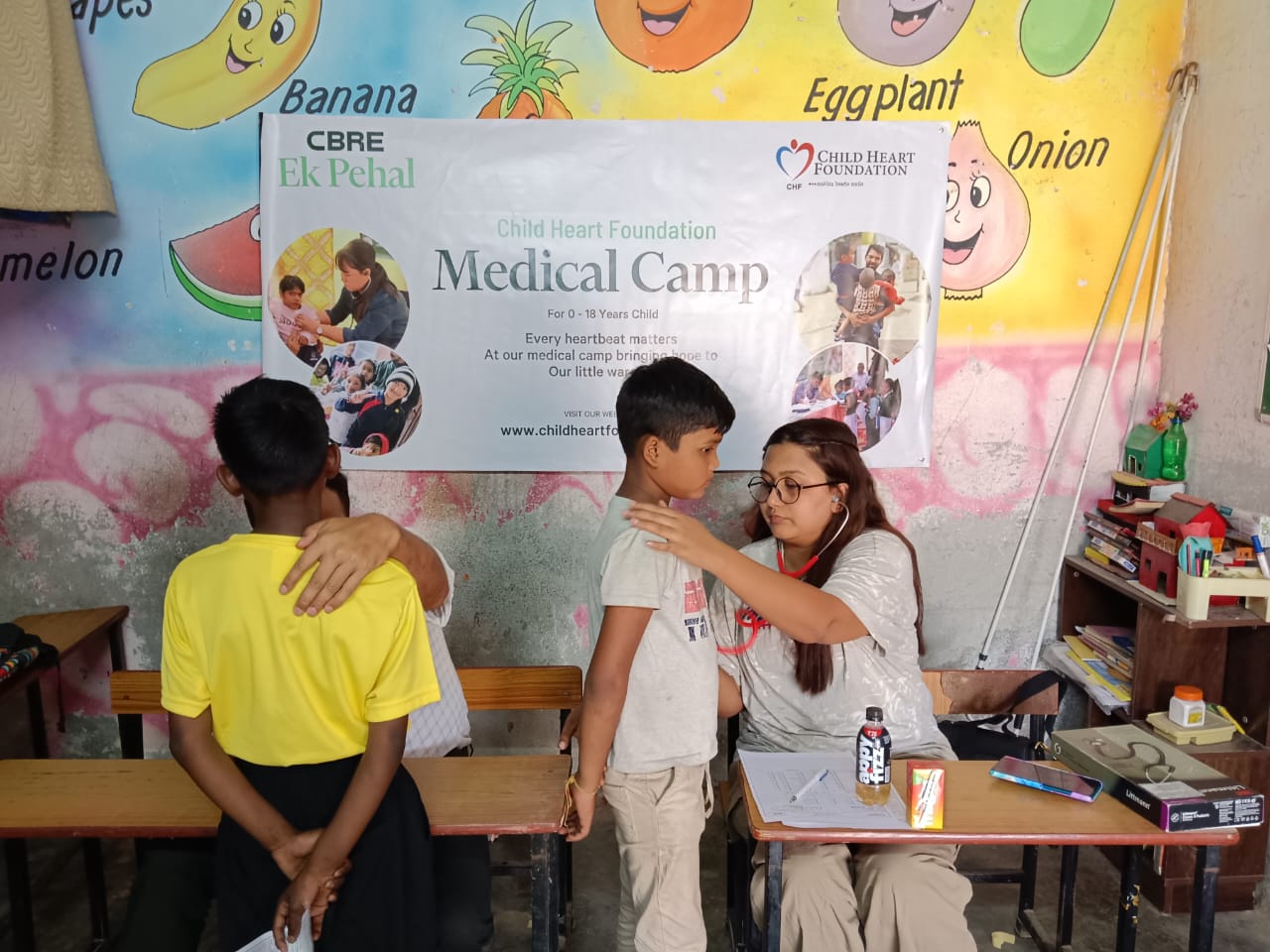 • Ongoing initiatives with CBRE’s partner, Ritanjali, will involve heightened efforts to offer health and nutrition practices, basic education, and awareness of sanitation practices for migrant workers and their families. Overall, the initiative is expected to benefit approximately 40,000 lives this year.
• Ongoing initiatives with CBRE’s partner, Ritanjali, will involve heightened efforts to offer health and nutrition practices, basic education, and awareness of sanitation practices for migrant workers and their families. Overall, the initiative is expected to benefit approximately 40,000 lives this year.
• CBRE has partnered with Blood Connect Foundation for life-saving initiatives aimed at addressing the critical shortage of blood for paediatric needs, ensuring children with Thalassemia, cancer and birth complications receive safe blood. The initiative is focused on creating a sustainable impact that will help save countless young lives. Program titled Nannhi Muskaan is designed to develop sustainable, significant change to provide healthier, happier futures for children in need. CBRE has also collaborated with the Child Heart Foundation, which aims to organize health awareness sessions, set up health camps, and actively work towards the cause of treating children with heart diseases. Cumulatively, both these programs will impact the lives of over 30,000.
Q. Having led advisory on major infrastructure and government projects in India, what lessons have you drawn about the value of cross-sector collaboration in driving scalable community development?
A. Leading advisory on major infrastructure and government projects has underscored the value of cross-sector collaboration in community development. Partnerships with organizations like Bal Raksha Bharat and Ritanjali enhance the reach and impact of initiatives, combining expertise from the public, private, and non-profit sectors to address complex social challenges.
Engaging local communities in the development process ensures that solutions are tailored to their needs and are more likely to be embraced. Collaborative partnerships that include community input lead to more relevant and impactful interventions.
Q. In what ways is CBRE integrating community upliftment—such as education, healthcare, skilling, and nutrition—into its CSR strategy, especially when working with vulnerable urban populations like migrant workers?
A. CBRE integrates community upliftment into its CSR strategy by focusing on education, healthcare, skilling, and nutrition. Programs under 'Ek Pehal' provide remedial education, health check-ups, and nutrition support to migrant workers and their families. These initiatives aim to improve the overall well-being of vulnerable urban populations, ensuring they have access to essential services and opportunities for advancement.
• Collaborations with Bal Raksha Bharat will establish SMART classrooms and Basic Literacy and Education Skills- BLES- programs in government primary schools across Chennai, Kolkata, Mumbai, Bangalore, and Delhi-NCR, aiming to improve the nutrition of children and women from migrant labourer families, impacting approximately 50,000 lives. Ongoing work with Ritanjali will be intensified to provide health & nutrition education, basic schooling, and sanitation awareness to migrant workers and their families, benefiting around 40,000 people. Through a partnership with BloodConnect Foundation, CBRE will address the blood shortage for children with critical illnesses via the Nannhi Muskaan program, creating a sustainable impact to save young lives. Collaborating with the Child Heart Foundation will enable health awareness sessions, camps, and treatment for children with heart conditions; together, these initiatives will reach over 30,000 beneficiaries. Furthermore, CBRE has partnered with the Institute for Research and Growth to focus on slum development in Mumbai and Gurgaon, undertaking infrastructure projects and community support for over 5,000 individuals. Finally, a partnership with 'Shiksha' in Delhi-NCR will support the education and nutrition of around 5,000 children of migrant labourers by adopting a school and providing essential resources.
• CBRE's CSR program has impacted over two lakh construction workers across Chennai, Pune, Hyderabad, Delhi-NCR, and Mumbai, providing essential support through health camps, nutrition, and hygiene kits. Building on this success, this year's efforts will expand with a focus on the identified areas. These programs aim to enhance well-being and create lasting positive change for migrant labourers and their families, reinforcing CBRE's commitment to social responsibility and community upliftment.
Q. Under your leadership, CBRE in India has grown exponentially in both scale and impact. How have you cultivated an organizational culture that champions ethics, community engagement, and shared value creation?
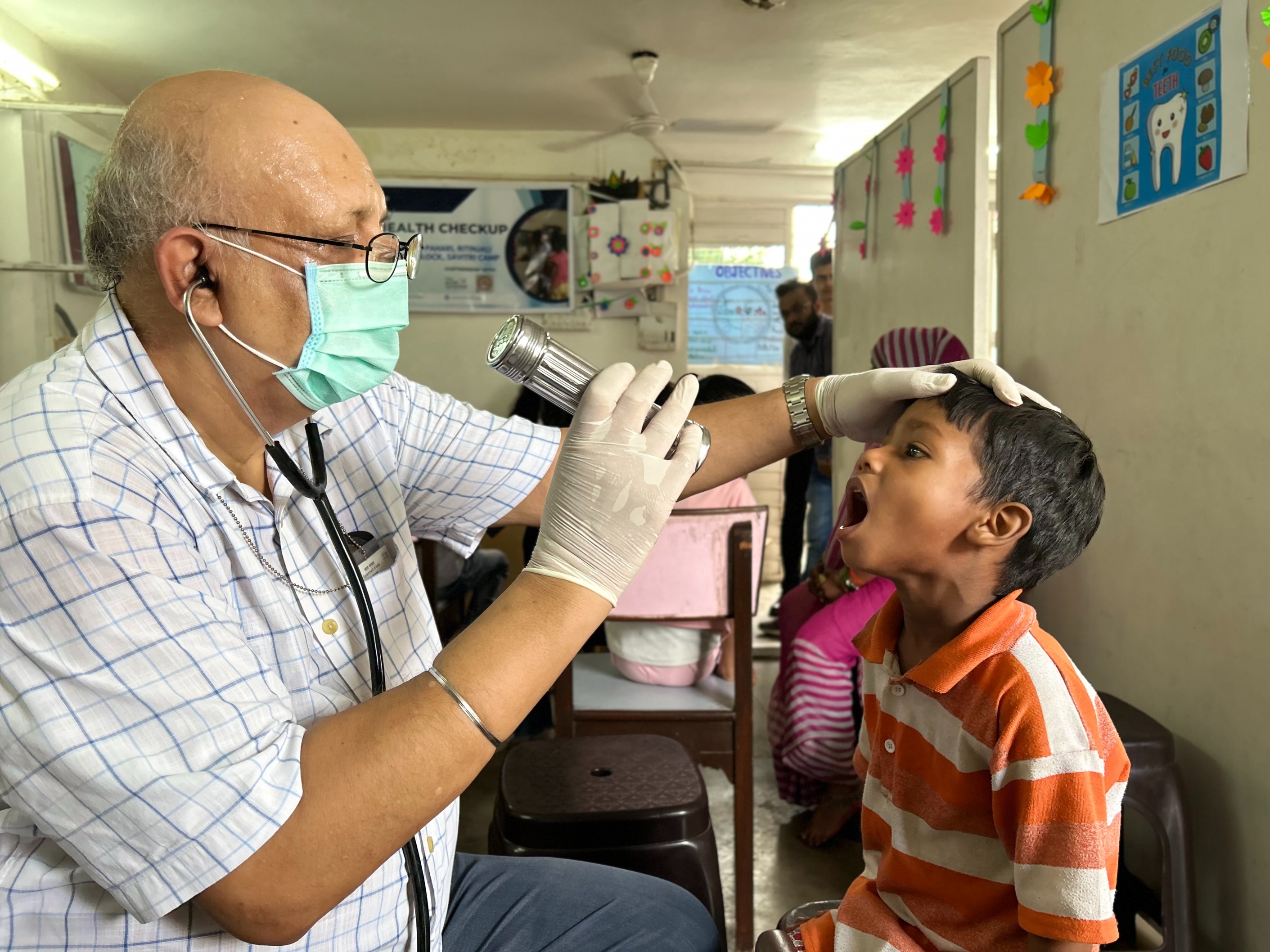 A. CBRE India has experienced remarkable growth, not only in scale but also in its societal impact. The organization has actively fostered a culture that emphasizes ethics, community engagement, and shared value creation. This commitment is deeply embedded in CBRE India's core values, encapsulated in the RISE framework—Respect, Integrity, Service, and Excellence.
A. CBRE India has experienced remarkable growth, not only in scale but also in its societal impact. The organization has actively fostered a culture that emphasizes ethics, community engagement, and shared value creation. This commitment is deeply embedded in CBRE India's core values, encapsulated in the RISE framework—Respect, Integrity, Service, and Excellence.
CBRE's commitment to social responsibility through its 'CBRE Ek Pehal' program, aimed at supporting migrant construction workers and their families, resonates highly with the employees as they feel extremely proud to be part of the noble cause. Knowing that the company is dedicated to improving the lives of vulnerable communities enhances overall job satisfaction and creates a sense of purpose in the work. Employees also feel more connected to the organisation's values and mission, which fosters a stronger sense of loyalty and commitment.
Moreover, CBRE's CSR initiatives encourage extensive employee participation through volunteering or contributing to fundraising efforts. Such activities provide opportunities for employees to collaborate outside of their regular work duties, promoting teamwork and strengthening relationships across departments. This led to improved communication and a more positive work environment. Furthermore, employees continually experience personal growth and development through their involvement in CSR activities. Volunteering provides opportunities to develop new skills, such as leadership, communication, and problem-solving. Interacting with diverse communities also broadens their perspectives and increases their empathy and social awareness.
Q. Finally, when you reflect on the social footprint CBRE aims to leave behind—not just in buildings but in lives—what would you want that legacy to look like five or ten years from now?
A. Reflecting on the social footprint CBRE aims to leave behind, the company envisions a legacy that transcends physical structures, focusing on the lives improved through its initiatives. In five to ten years, CBRE India aspires to:
• Healthcare Access: Ensure that migrant workers and their families have access to quality health services, including preventive care, maternal and child health, and mental health support.
• Educational Opportunities: Provide access to quality education for children of migrant workers, including digital learning resources, remedial education, and vocational training programs.
• Nutritional Support: Implement programs that address malnutrition and promote healthy eating habits among migrant families.
• Community Empowerment: Foster inclusive communities where migrant workers and their families feel safe, healthy, and have opportunities for socio-economic advancement.




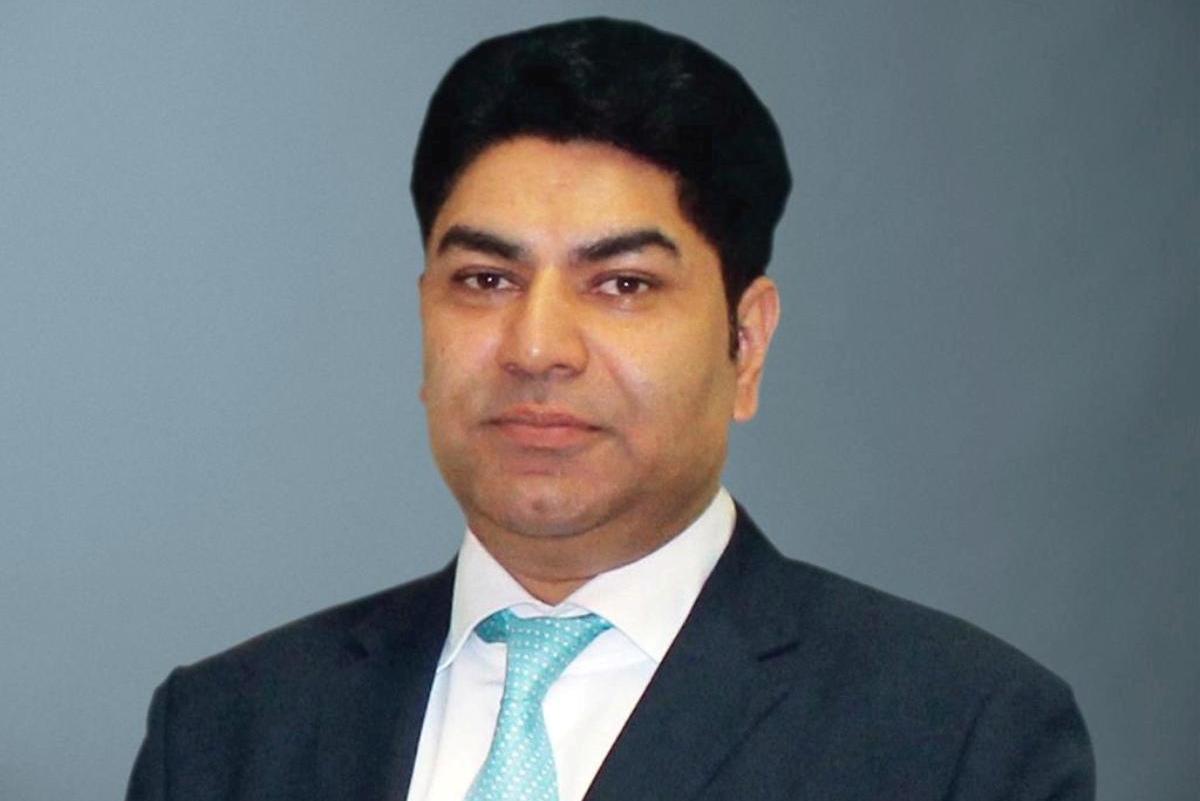
 Q. Over the years, CSR in India has evolved from compliance to strategic impact. How has CBRE’s approach to CSR transformed in this journey—from philanthropy to purpose-driven programs like ‘Ek Pehal’ that align with core business expertise and community needs?
Q. Over the years, CSR in India has evolved from compliance to strategic impact. How has CBRE’s approach to CSR transformed in this journey—from philanthropy to purpose-driven programs like ‘Ek Pehal’ that align with core business expertise and community needs? Q. With operations spanning 19 countries, how does CBRE localize its global ESG and CSR vision to suit India’s unique social landscape, while ensuring measurable and sustainable outcomes?
Q. With operations spanning 19 countries, how does CBRE localize its global ESG and CSR vision to suit India’s unique social landscape, while ensuring measurable and sustainable outcomes? • Ongoing initiatives with CBRE’s partner, Ritanjali, will involve heightened efforts to offer health and nutrition practices, basic education, and awareness of sanitation practices for migrant workers and their families. Overall, the initiative is expected to benefit approximately 40,000 lives this year.
• Ongoing initiatives with CBRE’s partner, Ritanjali, will involve heightened efforts to offer health and nutrition practices, basic education, and awareness of sanitation practices for migrant workers and their families. Overall, the initiative is expected to benefit approximately 40,000 lives this year. A. CBRE India has experienced remarkable growth, not only in scale but also in its societal impact. The organization has actively fostered a culture that emphasizes ethics, community engagement, and shared value creation. This commitment is deeply embedded in CBRE India's core values, encapsulated in the RISE framework—Respect, Integrity, Service, and Excellence.
A. CBRE India has experienced remarkable growth, not only in scale but also in its societal impact. The organization has actively fostered a culture that emphasizes ethics, community engagement, and shared value creation. This commitment is deeply embedded in CBRE India's core values, encapsulated in the RISE framework—Respect, Integrity, Service, and Excellence.












.jpg)



